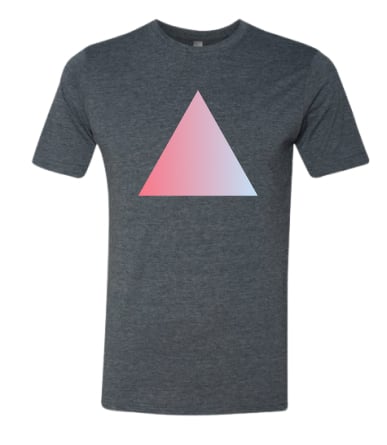
Table of Contents
Your custom t-shirts say more than that you like Justin Bieber. On each of your tees, your environmental impact is literally written in ink.
Traditionally, choosing the right ink for your tee has been a combination of quality, ease of use, and price. However, for designers and consumers today, the environmental impact of our choices matter more than ever before. If you’re looking for eco-friendly screen printing that doesn’t affect quality or price, what are your options?
Screen printing companies large and small are jostling for pole position in the “green” and “eco-friendly” ink markets. However, because these claims are largely unregulated, just because a product or a company claims to be “green” or “eco-friendly” doesn’t mean that it actually is.
Knowing this, it’s important for us not just to claim that one kind of screen printing ink has a lower environmental footprint than another. We need to break down, systematically, the many factors that go into making a responsible choice.
Let’s start by talking about the ink that remains the industry standard today: plastisol ink.
The Environmental Impact of Plastisol Ink

Plastisol ink, which is a plastic-based ink often used for mass-produced apparel, is still the screen printing industry standard due to its ease of use. To understand the environmental impact of plastisol ink, let’s look at its basic chemical components.
Plastisol’s chemical base is made up of something called polyvinyl chloride (or PVC), which is composed of a plasticizer liquid and PVC resin (i.e. harmful chemicals). PVC is valued for its ease of use and versatility in mass production. However, making it results in the release of the chemicals polychlorinated biphenyl (or PCB) and dioxin. Both of these chemicals are, at the very least, highly toxic, and, in some cases, carcinogenic according to the World Health Organization.
In addition to the toxicity of its chemical base, the chemicals used in the manufacturing and maintenance of plastisol ink have potentially detrimental effects on both small-scale and wide scale environmental health. Specifically, most plastisols contain something called phthalates.
Phthalates are added to plastisol inks to transform a naturally hard plastic into a soft, malleable one. However, like PCB and dioxin, phthalates have also been shown to be carcinogenic. In addition, there has been a lot of research on the damage phthalates can do to the reproductive system.
Not only are phthalates potentially harmful to human health, they’re also released into our ecosystem during the printing and curing process, resulting in cumulative harm to our environment. It doesn’t just stop in the screen printing shop either, plastisol-made garments continue to release phthalate toxins when exposed to heat, such as sustained sunlight, and even just a high-powered dryer.
Finally, in addition to the toxicity of plastisol’s chemical base and its added phthalates, the specialized chemicals screen printing shops need to use to clean up plastisol inks can also be extremely toxic if not disposed of properly.
Essentially, plastiol screen printing ink impacts the environment in every stage of its life cycle, from making it, to using it, to laundering it. But is the alternative to plastisol ink, water based ink, any better for us and our environment?
The Environmental Impact of Water Based Ink

Water based ink, which is made by suspending a 100% biodegradable pigment into a water base, is gaining popularity within the screen printing industry due to its combination of quality, affordability, and eco-friendliness.
As a compound, water-based ink is much more gentle on the environment than plastisol ink. It simply doesn’t contain any of the toxic chemicals of its plastisol counterparts (no PVC, no phthalates). Instead it’s comprised of naturally occurring substances.
Because of this, water based ink is much less risky for printers, consumers, and the environment. In addition, because it’s water soluble, no specialized chemicals are required for its clean up. This keeps potentially harmful substances out of our waste and water supply.
It’s important to remember that, though the components of water based ink are certainly less harmful to the environment than those of plastisol inks for screen printing, the ultimate eco-footprint of water based ink has as much to do with how the ink is handled, stored, and cleaned as it does the fact that it is much less toxic than plastisol ink.
Water based inks are only eco-friendly when you use and dispose of them in a responsible manner. To put it simply, you can’t go halfway, you have to finish the job. Even the best, most gentle industrial inks and cleaning products are still chemicals. Most of the long term ecological damage of screen printing is a result of the waste in cleanup, not the process or the chemicals. This is why it’s so important to learn how to safely dispose of screen printing ink.
Conclusion

Consumers now know the effects that screen printing chemicals have on the environment and their own health. For screen printers, this means we must consider mother nature in addition to quality and price. We need to review our processes, from our products to our equipment to our waste, and look for ways to be environmental advocates.
This is printing. It all starts with the ink. Despite its convenience and ease of use, the persistence of plastisol inks in this business is irresponsible to our climate and to ourselves. Water based ink products, when used correctly, can maintain the quality that our consumers demand, while also forwarding the goal of being stewards of the ecosystem we all share.
Alex Hales
Related Articles
Alex Hales
Alex Hales
Alex Hales
One Tree Planted
a tree with every online order placed.
1 Order Placed = 1 Tree Planted
In partnership with onetreeplanted.org
One Tree Planted
1 Order Placed = 1 Tree Planted
In partnership with onetreeplanted.org
Contact
- Mon - Fri | 9 AM – 5:30 PM PST
- quote@dtlaprint.com
- 4901 South Santa Fe Ave. Vernon, CA 90058
We Are Exclusively By Appointment Only.
Services
subcategories
Popular Products

Southern Tide Mini Skipjack Hat

Adidas Adjustable Washed Slouch Cap

Swannies - Delta Cap

Imperial - The Original Small Fit Performance Cap

Oakley - Pro-Formance Cap New

Sportsman - Five-Panel Rope Heritage Fit Cap

OTTO - 5 Panel Mid Profile Baseball Cap

Los Angeles Apparel - 18/1 S/S Oversized Mock

Los Angeles Apparel - 8.5 Oz S/S Garment Dye T-Shirt

Los Angeles Apparel - BABY RIB MOCKNECK TEE

Los Angeles Apparel - Garment Dye Micro Crop Tee

Los Angeles Apparel - Baby Rib Long Sleeve Crewneck

Los Angeles Apparel - Baby Rib Short Sleeve V-Neck Crop Tee

Los Angeles Apparel - Baby Rib Short Sleeve Crop Tee

Helly Hansen Mens Engram Jacket

Helly Hansen Mens Chelsea Evo Winter Jacket

Helly Hansen Mens Bergholm Insulated Winter Jacket

Helly Hansen Womens Salt Original Jacket

Helly Hansen Womens Imperial Pile Jacket

Helly Hansen Mens Daybreaker Block Microfleece Jacket

Helly Hansen Womens Aspire Puffy Parka

Los Angeles Apparel - 16oz. Plush Fleece PO Hoodie

Los Angeles Apparel - 12OZ TRIBLEND FLEECE HOODIE

Los Angeles Apparel - Baby Rib Long Sleeve Hoodie

Los Angeles Apparel - 12oz Fleece Wide Hoodie

Under Armour Womens Drive Pro Hybrid Hoodie

Under Armour Womens Breezy Hoodie

Southern Tide Womens Linley Brrr-illiant Performance Hoodie

Los Angeles Apparel - Bull Denim Shopping Bag

Peter Millar Pursuit Tote

Johnnie-O Dyed Canvas Tote Bag

Johnnie-O Nylon Packable Tote

Los Angeles Apparel - Oversize Bull Denim Bag

Patagonia Terravia Tote Pack

Patagonia Black Hole Tote 25L

Everybody World - Adjustable Apron

Artisan Collection by Reprime - Annex Oxford Apron with Pocket

Artisan Collection by Reprime - Recycled Bib Apron

Artisan Collection by Reprime - Artisans Choice Canvas Apron

Artisan Collection by Reprime - Barley Stitch Recycled Bib Apron with Pockets

Artisan Collection by Reprime - Regenerate Recycled Bib Apron

Artisan Collection by Reprime - Espresso Bib Apron with Pockets
-
Screen Printing
High-quality prints, eco-friendly options
-
Embroidery
Expert stitching for lasting impressions
-
Finishing Services
Custom details for a polished look
-
DTG – direct to garment
Detailed designs, soft feel
-
Waterbased transfer printing
Natural feel, durable designs
-
Custom-dyed merchandise
Personalized colors for unique style
resources
get a quote!
Fill out this form to help us understand your needs and respond accurately.

4
47 Brand
A
Adidas
A
Allmade
A
American Apparel
A
ANETIK
A
Artisan Collection by Reprime
A
AS Colour
B
Badger
B
Bayside
B
Beimar
B
Bella + Canvas
B
Bogg
B
Boxercraft
C
Carhartt
C
Carmel Towel Company
C
Champion
C
Colortone
C
CORE365
C
Columbia
C
Comfort Colors
C
Cotton Heritage
D
DTLA Print
D
Dyenomite
E
Econscious
E
Everywhere Apparel
F
Flexfit
F
Fruit of the Loom
G
G Fore
G
Galvin Green
G
Gildan
H
Hanes
H
Helly Hansen
I
Independent Trading Co.
I
Imperial
I
Infinity Her
J
Jaanuu
J
Jerzees
J
Johnnie-O
K
Kishigo
K
Knack
L
Lane Seven
L
Legacy
L
Liberty Bags
L
Los Angeles Apparel
M
M&O
M
Marine Layer
N
New Era
N
Next Level
N
Nike
N
North Face
O
Oakley
O
OGIO
O
Onna
O
OTTO
O
Original Favorites
P
Patagonia
P
Peter Millar
P
Port & Company
P
Port Authority
Q
Q-Tees
Colors and Sizes
Thanks for subscribing!
You’ll be the first to know about exclusive offers, deals, and the latest news. Keep an eye on your inbox for your welcome email!
oops.. something went wrong!
Looks like we had a little trouble processing your subscription. Please try again or reach out to us if you need assistance
Contact Us
Call Us
Send Us A Message
Get a Quote
There is a 100 piece minimum to work with a sales rep.
For online orders
Screen Printing: 25 pieces minimum
Embroidery: 3 pieces minimum
Water-based Transfers: 1 pieces minimum
Direct-To-Garment: 1 pieces minimum
Patches: 25 pieces minimum
Office: (323) 261-8700
9 AM - 5:30 PM PST
Chat Available 9 AM - 2 AM PST
Back
Basic info
Your dedicated account rep is here to keep you updated and offer real time suggestions and project navigation every step of the way. Online ordering and live price quotes available here.
Have you ordered custom apparel & headwear before?
This will help us tailor the experience depending on your experience and know how to best support you.
Which services are you interested in?
Select one or as many of the services below you are interested in.
Do you already know what products you would like to order?
If you need help to identify the correct product for the correct demographic at the correct price point, select "I need help searching" and we will ask you a few additional questions to allow us to submit the best options for your project.
Tell us a little about your target demographic
We want to make sure your recipients will love and wear the merch you create time and time again. These questions will really help us identify the products that will best fit your audience.
Design Included in price
- Embroidery - Up to 4” x 4” or 8k stitches ( standard logo placements, +$1.50 per 1k stitches )
- Screen Print - Up to 15x18” 1-6 Colors, any larger custom quote, would need to see mock up, submit request here ( link to /contact form )
- Digital / DTG - Up to 14x16” ( +$5 for 15x18” )
- Patches - Up to 3.5” x 3.5” ( + $4.35 up to 5” x 5” )
- Waterbased Transfers - Up to 11x15” ( +$4.85 extra for any larger up to 13.5x17” )
Minimum Order Quantity
- Embroidery-3 pieces min.
- Screen Print-25 pieces min.
- Digital / DTG-1 piece min.
- Patches-25 pieces min.
- Waterbased Transfers-1 piece min.
Edit Quantity
Choose Colors & Sizes
Enter your quantity per size
Please make sure that you have reached minimum order quantity for preferred option. MOQ descriptions you can find
Finishing Services
Fold & Poly Bag
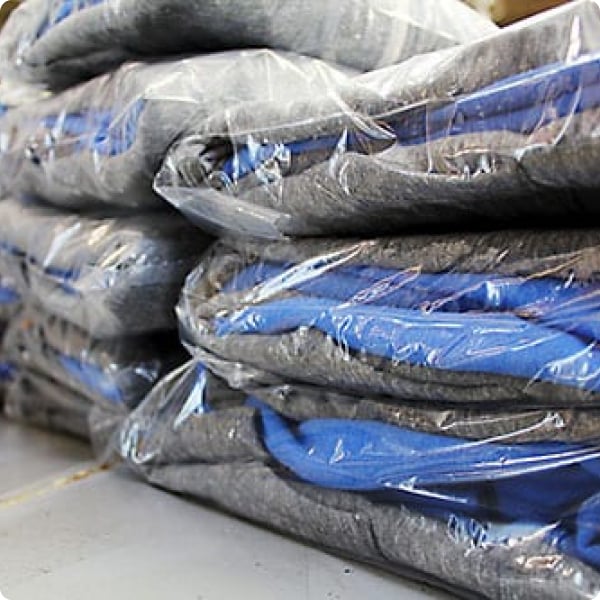
DTLA Print has an in house finishing department in its facility with trained individuals to professionally fold and bag your garments. Bags can be provided with customizable options, however we use a 1 mill flat poly bag which can be air sealed or taped shut.
$0.95/Shirt
+ 2 days
Size Sticker
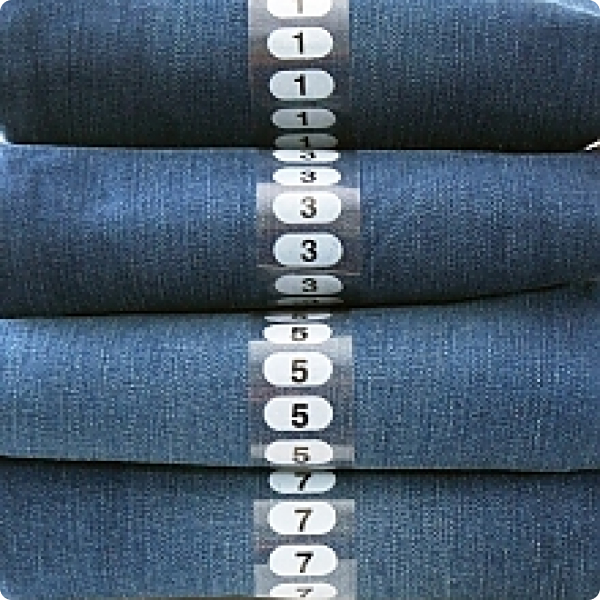
Add a size sticker to the outside of each garment or poly bag to easily identify the size of a garment. Packages do come separated by size how ever many retailers and fulfillment centers do require these stickers.
$0.65/Shirt
+ 2 days
Custom UPC Label
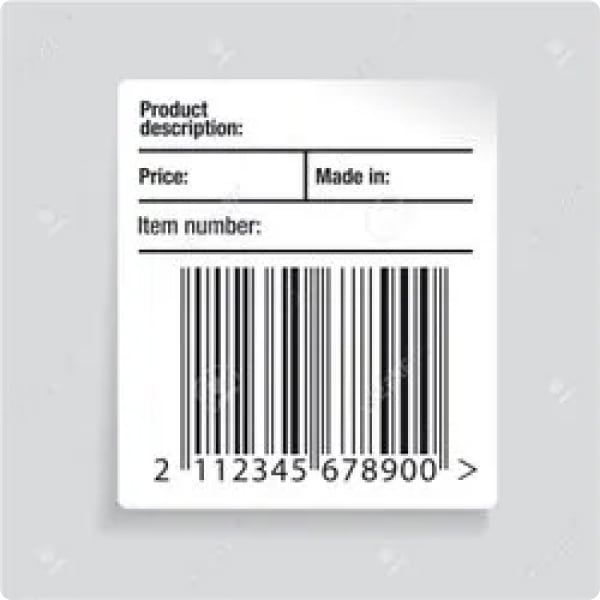
We will print & apply a custom UPC label for any retailer, 3rd party logistics or fulfillment partner you work with.
$0.75/Shirt
+ 2 days
Hang Tag

Incorporating price tickets and hang tags securely with a pin, while offering a diverse array of sizes, colors, and finishes, significantly enhances the perceived quality and overall appeal of your garment. Additionally, not only elevate the garment’s perceived value but also provide essential product information, giving your customers a more informed and satisfying shopping experience.
$1.8/Shirt
+ 14 days
Woven Main Label
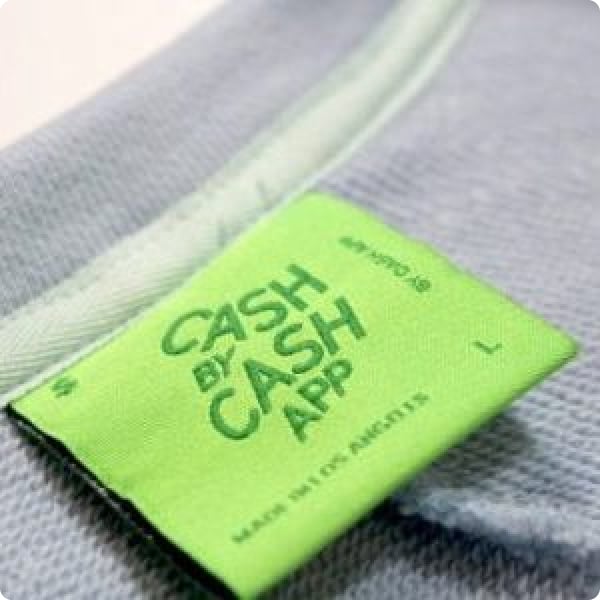
Create a fully custom woven main label. Includes the actual label itself and the sewing of the label. We will reach out to discuss the woven label material choices, shapes, and design. Please note this does add extra business days to the production time.
$2.75/Shirt
+ 14 days
Woven Hem Label

Create a fully custom woven hem label. Similar to the main label, this includes the actual label itself and the sewing of the label. We will reach out to discuss the woven label material choices, shapes, and design. Please note this does add extra business days to the production time. Hem labels go anywhere except the neck label of a garment.
$1.85/Shirt
+ 14 days
Design guidelines
Embroidery
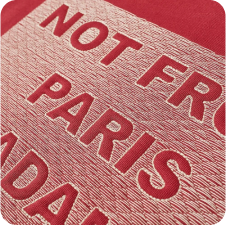
Standard Size
4.5” W but larger can be requested
Max Size
Not common, but possible
File Formats
PSD, AI, PDF, EPS, PNG
Max Thread Colors
12
Specialty Threads
Metallic & 3D Puff
File Specs
Scaled to size or larger with transparent background
Screen Print
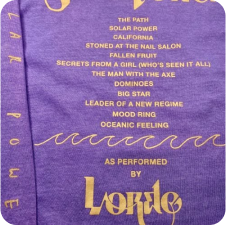
Standard Size
3” - 12” depending on location
Max Size
15x18” *special request
File Formats
PSD, AI, PDF, EPS, PNG
Max Colors
8
Specialty Inks
3M Reflective, Water-based, Plastisol, Puff, Etc...
File Specs
Scaled to size or larger with transparent background
Digital / DTG
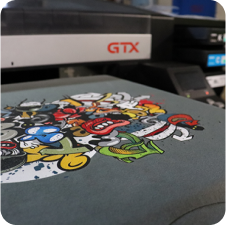
Max Size
15x18”
File Formats
PNG preferred, ( also acceptable; PSD, AI, PDF, EPS, JPG )
Max Colors
Unlimited
File Specs
300 DPI scaled to size or larger with a transparent background
Patches
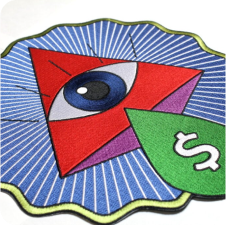
Max Size
10x13.5”
File Formats
PNG preferred, ( also acceptable; PSD, AI, PDF, EPS, JPG )
Max Colors
Unlimited
File Specs
300 DPI scaled to size or larger with a transparent background
Waterbased Transfers
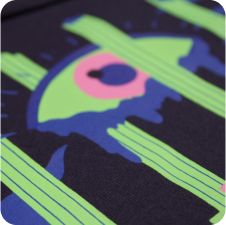
Max Size
15x18”
File Formats
PNG preferred, ( also acceptable; PSD, AI, PDF, EPS, JPG )
Max Colors
Unlimited
File Specs
300 DPI scaled to size or larger with a transparent background
Upload Design
Upload Mockups
Don’t worry! Every order is triple checked even if it does not look perfect in this demo.
Do you want us to remove the background?
Our new AI tool will remove the background from the image 100% automatically and free.
Max File Size: 15 MB. For any files larger than 15MB please send via wetransfer.com or dropbox.com and share with sales@dtlaprint.com
Order option

We refer to “Blanks” as garments or products with out any decoration, logo, modification, etc... Essentially it is a product that has yet to be customized.
Blanks are typically ordered to test the fit, fabric, & feel but can also be purchased in bulk to customize on your own or be worn blank.
# of Colors

1 Colour

2 Colour

4 Colour

6 Colour
In screen printing, this is a reference to how many different colors are found in your design. We don’t charge for the base layer so only count the different colors you find in your design / logo.

More than 6
We recommend the Digital or Waterbased Transfer Print method for
Position
Tell us where on the garment you would like the specific design or logo and your account rep will create you a proper mock up to ensure that the design is printed as you intended.
Don’t worry if you don’t place it perfectly, we triple review each order to ensure satisfaction.
Front

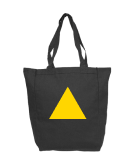


Back



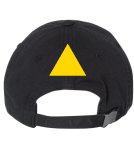
Left



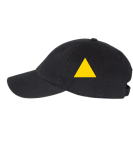
Right




Neck Label

Decoration Methods Explained
Fabric
Minimums
Photo Quality
Set up Fees
Large Volume
Low Volume
Specialty Inks
Eco-Friendly Inks
Black Ink
Pantone Matching
Color Vibrancy
Wash
Consistency

Screen Printing

Water-based Transfer

Direct to Garment

Embroidery
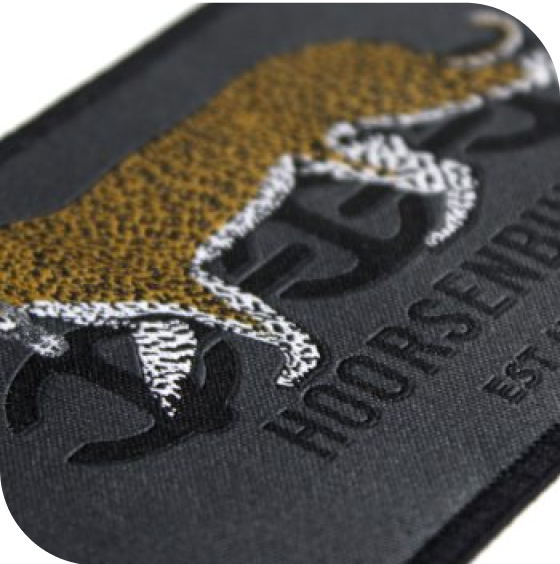
Patches
Screen Printing
Water-based Transfer
Direct to Garment
Embroidery
Patches
View Fabric + Ink Chart
Any
Recommend 100% Cotton For Best
Any
Any
25-100 pieces depending on # of colors
1 piece
1 piece
3 pcs
25 piece
A-to C+ depending on image
A+
A+
N/A
N/A
Per Color
Free
Free
Included
Included
Price Lowers Significantly
Price Lowers
Price Remains after 1k units
Small drop in pricing as quantities increase
Small drop in pricing as quantities increase
Expensive Initial Set Up Costs
Easy/No Set Up Free Pricing
Easy/No Set Up Free Pricing
Higher per unit price at low volume
Higher per unit price at low volume
Yes
No
No
3D Puff & Metallic Threads
3D Puff & Metallic Threads
Yes
Yes
Yes
N/A
N/A
Most Rich & Dark Blank Prints
Jet Black/100% Black Available
Black Prints Max Out At 90% Vibrancy
N/A
N/A
Yes
Yes
No
N/A
N/A
Best
Amazing Results on Any Fabric
Best on 100% Cotton
Vibrant
Vibrant
A+
A+
A- / B+ Depending on Fabric Blend
A+
A+
A+
A+
A+
A+
A+
Screen Print - Ink Types
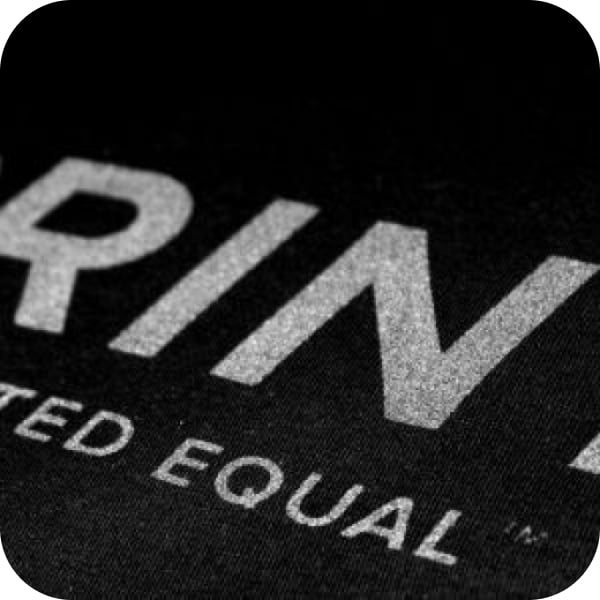
Eco friendly inks + screen prints are the true green alternative to screen printing. These inks replace traditional harmful inks and are 100% PVC and phthalate free.

Mostly used for athletic/activewear fabrics such as nylons, spandex, polyesters, rayons, lycra, that have a lot of stretch but can also be screen printed on other blends for different textures. These inks will make your prints stretch with the fabric and do not create cracks or creases when stretched. These should be printed on all sports jerseys, yoga apparel, athletic uniforms, and activewear.
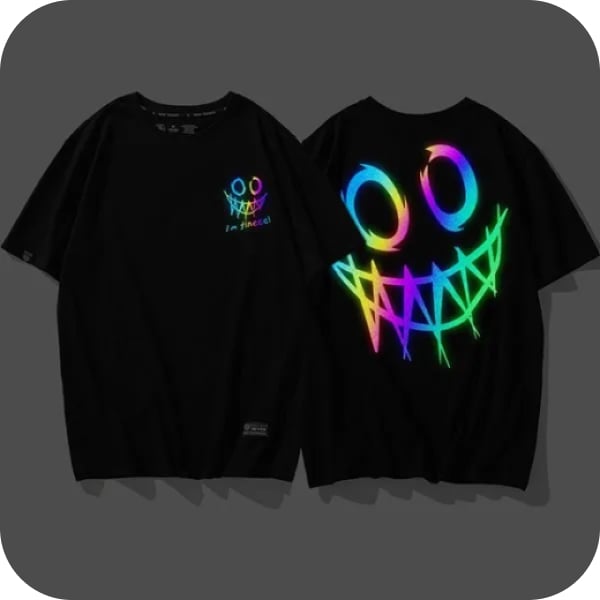
We offer the 3M reflective ink prints as well as a standard reflective print that come in either a water-based (eco-friendly) or plastisol-based ink with the unique ability to reflect once a light source is aimed at the print. Popular uses for this new ink includes police departments, fire departments, E.M.S., and other safety professions. Has recently become extremely popular in the skate, surf, urban, and street apparel industries.

Well known for their soft feel and vibrant colors they produce when printed onto t-shirts and other textiles. When printed water based inks leave no hand feel behind so you can feel the fibers of the garment.
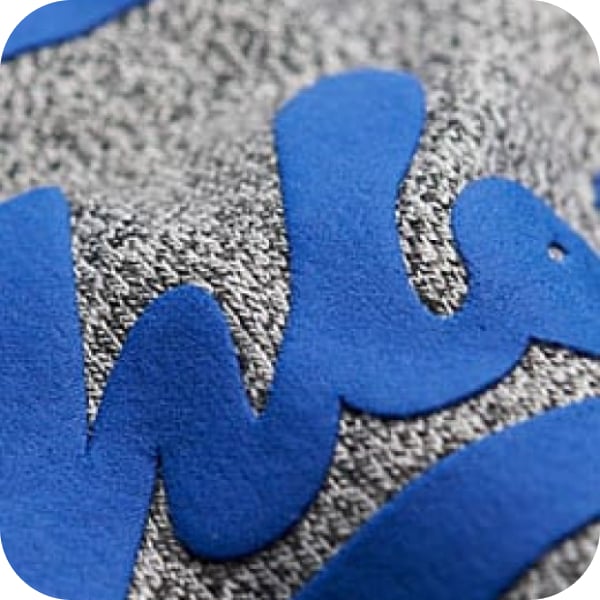
Inks that expands and rises when heated, giving a three dimensional look with a raised feel. Any Los Angeles t-shirt printer can buy inks and print them, but the real beauty and art of screen printing on t-shirts comes when you can mix inks correctly and accurately. Controlling how the puff inks actually puff is one example.

Silk screen t-shirt printing with plastisol is the oldest and most commonly used ink across the market to screen print your custom t shirts. The misconception how ever is that all inks are the same.

Specialty Order Off-Site
Available in both water based and discharge inks. The ink actually cracks in pieces the way you want it to so no two pieces will be alike. Great for vintage washed out looks while still brand new. This is custom silk screen printing at its best.
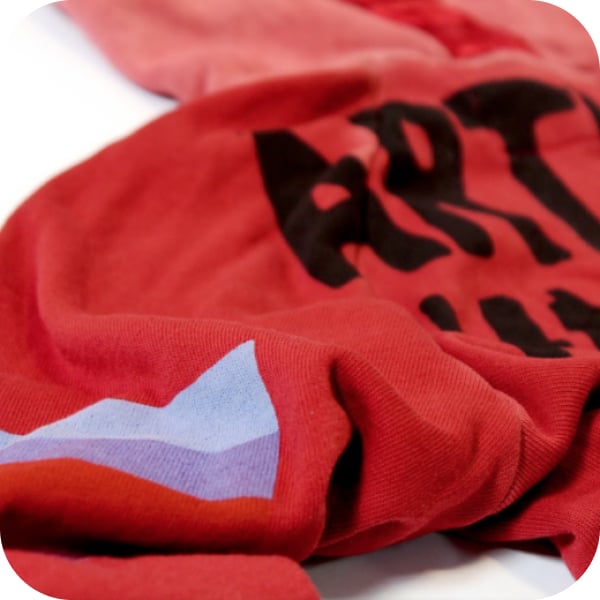
Specialty Order Off-Site
Perfect for creating custom silk screened T-shirts right here in Los Angeles. High Density inks can be matched to any color and rises in the drying process to create a 3D look. Inks can be raised to your desired height or width and can be printed with other high density inks of different sizes.
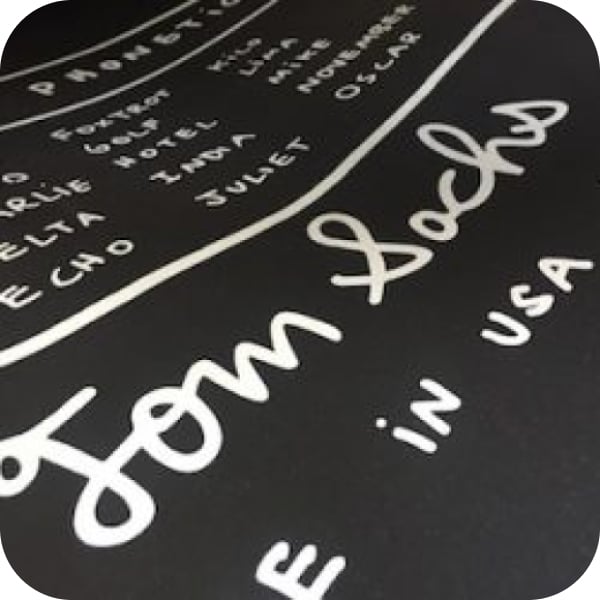
Specialty Order Off-Site
Burnout is a special screen printing process we use to removes the cotton fibers from a shirt, leaving only the polyester intact. It's perfect if you want to give your T-shirt designs that really cool see-through look.

Specialty Order Off-Site
Flocking screen printing can add a new dimension to your materials. Tiny particles of fiber are applied to a material with an adhesive, adding a suede-like or velvet texture to the surface. We color the fiber according to your designs, and you end up with products that stand out from the rest.
Water-based. w/ Base
Water-based. w/ Base
Oil Based. w/ Base
Oil Based. w/o Base
High Density
Puff
Stretch
Silicone
100% Cotton
90% Cotton
10% Poly
50% Cotton
50% Poly
Tri-Blends
100%
Polyester
95% Poly 5%
Spandex
What is Tax Exempt
Tax exemption is the reduction or removal of a liability to make a compulsory payment that would otherwise be imposed by a ruling power upon persons, property, income, or transactions. Tax-exempt status may provide complete relief from taxes, reduced rates, or tax on only a portion of items. Examples include exemption of charitable organizations from property taxes and income taxes, veterans, and certain cross-border or multi-jurisdictional scenarios.
*Only orders shipped with in California are charged tax unless a a valid CA resale form is provided.
How fast do you want us to produce your order?
Production time is separate from shipping
If you're in a hurry to receive your order, we offer an expedited service to fast-track the production process. While this option incurs additional charges, it ensures you get your product sooner. However, if time is not a pressing concern, you can stick to our standard production schedule at no extra cost. We believe in providing you with the flexibility to choose the timeline that best suits your needs.
Request a Callback
Please provide the best contact number for our team to reach out to you on, your account rep will reach out within 24-48 business hours.
A 100 piece minimum is needed for an account rep to handle your order.
































































